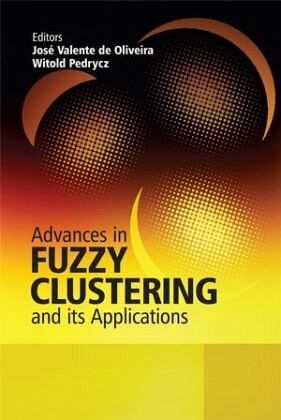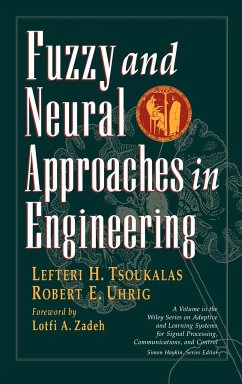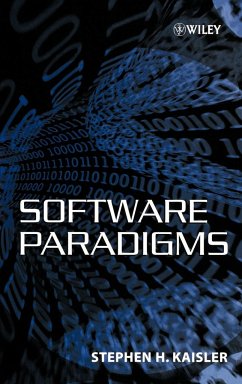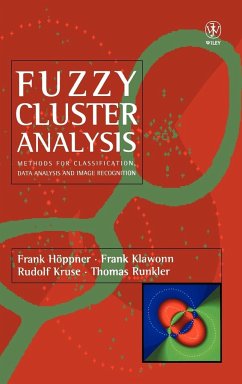
Advances in Fuzzy Clustering and Its Applications

PAYBACK Punkte
64 °P sammeln!
Divided into four sections, Advances in Fuzzy Clustering and its Applications first explores the essentials of fuzzy clustering, including motivation, basic algorithms, computing aspects, realizations, cluster validity assessment, and ensuing interpretation of the results along with several representative areas of applications.
A comprehensive, coherent, and in depth presentation of the state of the art in fuzzy clustering.
Fuzzy clustering is now a mature and vibrant area of research with highly innovative advanced applications. Encapsulating this through presenting a careful selection of research contributions, this book addresses timely and relevant concepts and methods, whilst identifying major challenges and recent developments in the area. Split into five clear sections, Fundamentals, Visualization, Algorithms and Computational Aspects, Real-Time and Dynamic Clustering, and Applications and Case Studies, the book covers a wealth of novel, original and fully updated material, and in particular offers:
_ a focus on the algorithmic and computational augmentations of fuzzy clustering and its effectiveness in handling high dimensional problems, distributed problem solving and uncertainty management.
_ presentations of the important and relevant phases of cluster design, includingthe role of information granules, fuzzy sets in the realization of human-centricity facet of data analysis, as well as system modelling
_ demonstrations of how the results facilitate further detailed development of models, and enhance interpretation aspects
_ a carefully organized illustrative series of applications and case studies in which fuzzy clustering plays a pivotal role
This book will be of key interest to engineers associated with fuzzy control, bioinformatics, data mining, image processing, and pattern recognition, while computer engineers, students and researchers, in most engineering disciplines, will find this an invaluable resource and research tool.
Fuzzy clustering is now a mature and vibrant area of research with highly innovative advanced applications. Encapsulating this through presenting a careful selection of research contributions, this book addresses timely and relevant concepts and methods, whilst identifying major challenges and recent developments in the area. Split into five clear sections, Fundamentals, Visualization, Algorithms and Computational Aspects, Real-Time and Dynamic Clustering, and Applications and Case Studies, the book covers a wealth of novel, original and fully updated material, and in particular offers:
_ a focus on the algorithmic and computational augmentations of fuzzy clustering and its effectiveness in handling high dimensional problems, distributed problem solving and uncertainty management.
_ presentations of the important and relevant phases of cluster design, includingthe role of information granules, fuzzy sets in the realization of human-centricity facet of data analysis, as well as system modelling
_ demonstrations of how the results facilitate further detailed development of models, and enhance interpretation aspects
_ a carefully organized illustrative series of applications and case studies in which fuzzy clustering plays a pivotal role
This book will be of key interest to engineers associated with fuzzy control, bioinformatics, data mining, image processing, and pattern recognition, while computer engineers, students and researchers, in most engineering disciplines, will find this an invaluable resource and research tool.












